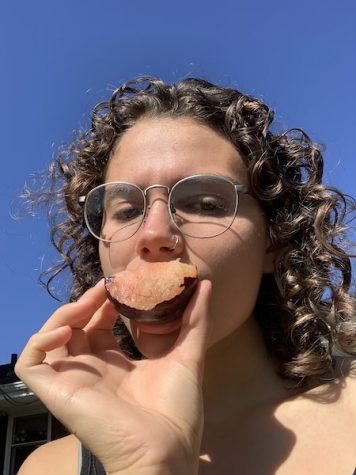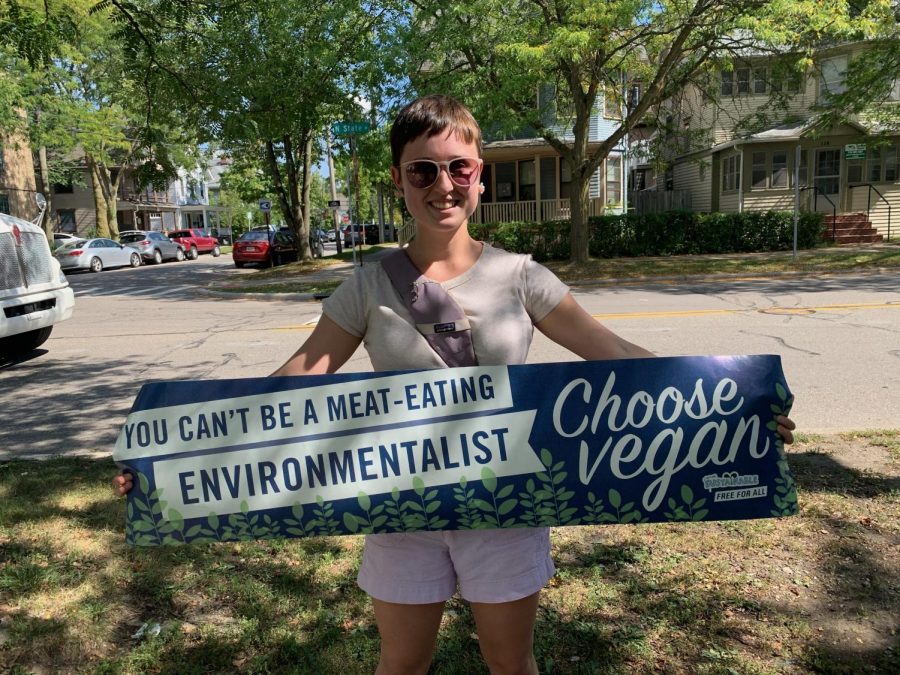The environmental effects of our meat industry with Jacqueline Webster
Jacqueline Webster proudly holds up the sign she brought to the Climate Strike.
Jacqueline Webster is the Co-president of the Michigan Animal Respect Society at U of M. MARS is a club that promotes a plant based diet and lifestyle in hopes of raising awareness about animal cruelty, the environmental effects of animal product production, the health benefits of a vegan diet and much more. Webster attended the climate strike on September 20th and was excited to feel the power and energy of the crowd. She loved seeing all the classes who took field trips specifically for the climate strike. Despite this, she was disappointed when there was no major talk of the environmental impact that our current animal product industry has.
“[The impact] is huge,” Webster said. “98 percent of the animal products that we eat in America come from these big industrial factory farms. It’s not like [they’re from] a little local mom and pop shop or the farmers’ market.” According to Webster, the demand for meat products continues to rise, specifically the demand for beef.
“We’re also just wasting so much land, energy, water and resources [sustaining the animal product industry] when we could be using them if we were really concerned about feeding a growing population,” Webster said. “Why are we wasting so much?”
Webster is happy that more places, specifically fast food chains, are offering plant based options like the Impossible Whopper at Burger King and KFC’s Beyond Chicken Nuggets. She has been vegan for six years and has seen incredible changes in just that time with how many plant based options are being offered. To see even bigger changes, she says more people need to switch to a plant based diet. Still, she also acknowledges that not everyone can switch to a fully vegan diet for many different reasons, one being limited access to quality plant based products.
“I tell people to start with where they’re at, to start with what they can do.”










